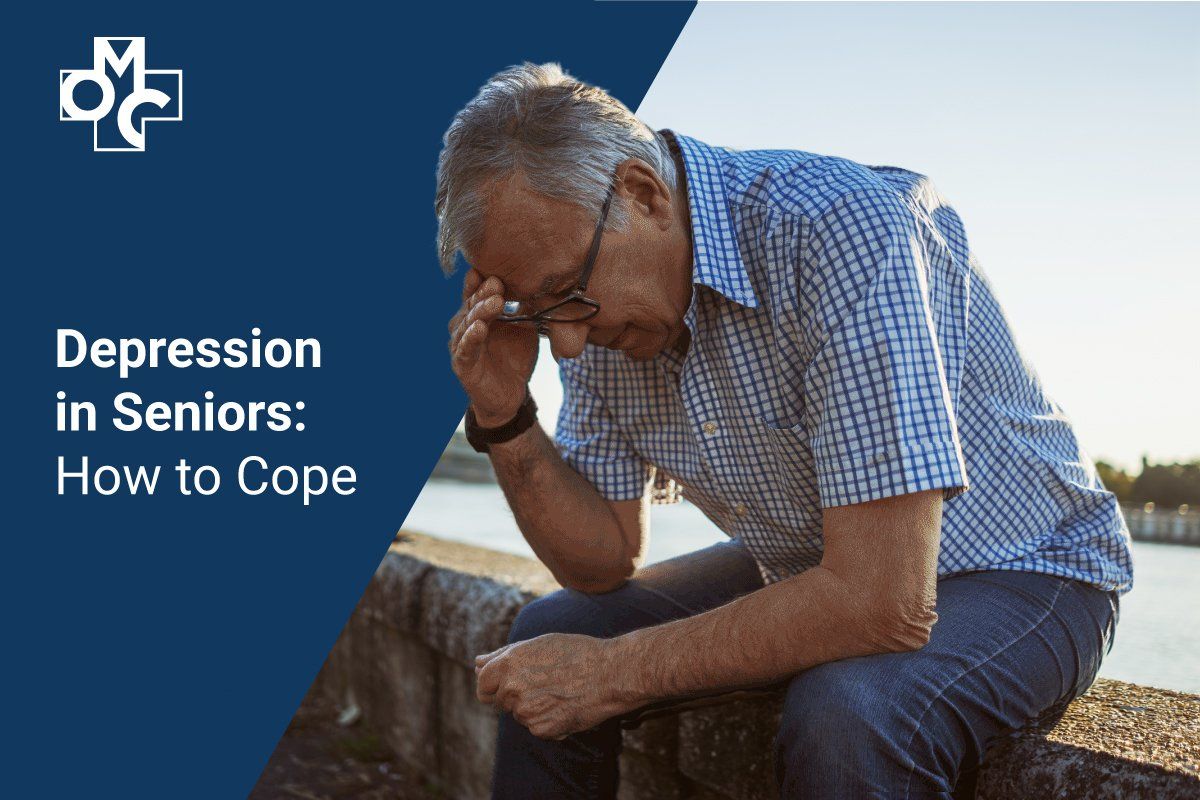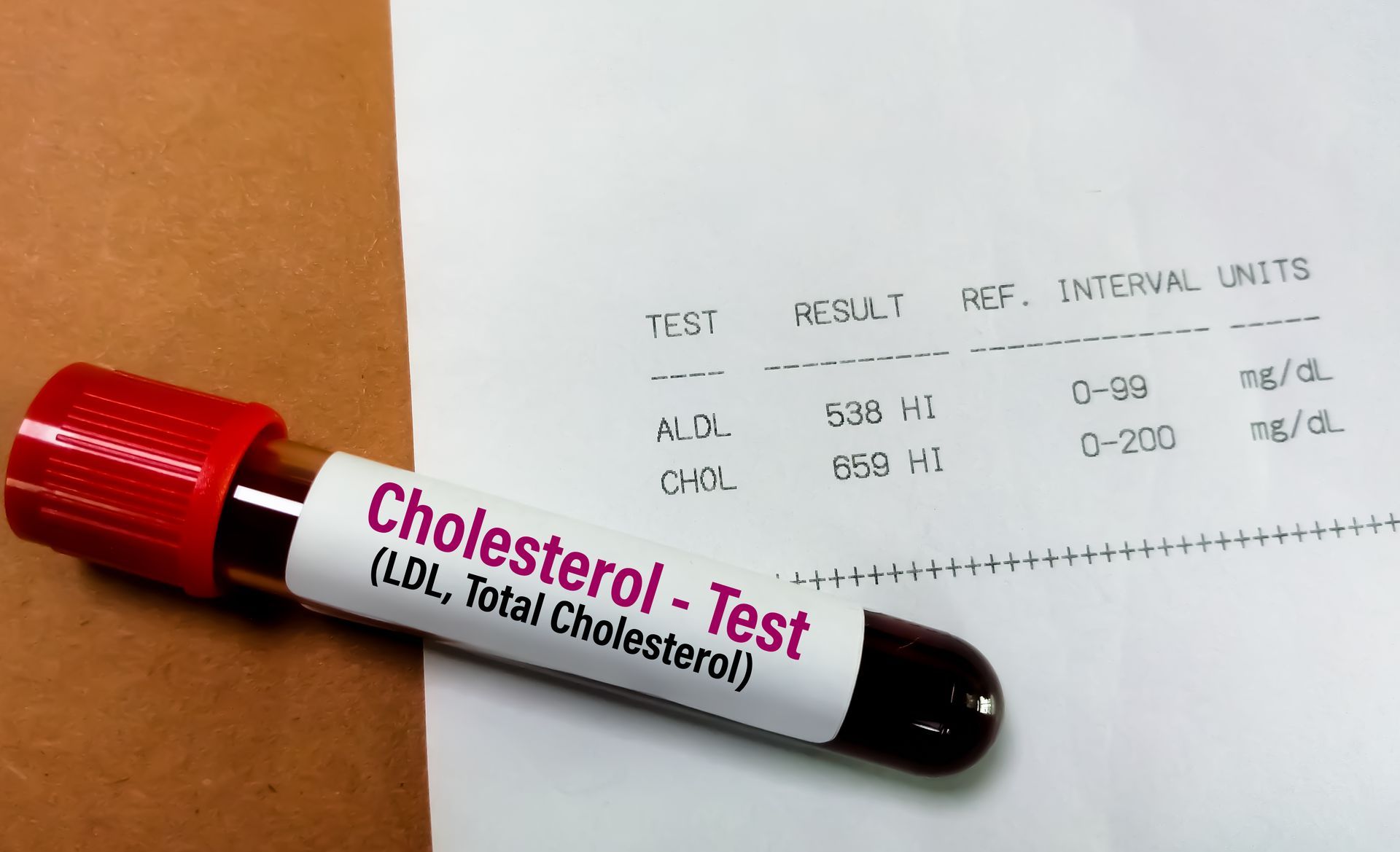Our Location
Elige tu idioma:
Depression in Seniors: How to Cope

Depression is a common mental health concern. In fact, depression in the elderly is on the rise, and that's something we need to talk about. With nearly 21 million Americans suffering from at least one major depressive episode, it's important to ask how to cope with this condition as you age.
As we observe National Depression Screening Day (Oct. 7) with Mental Health America, let's talk about the impact of depression on the elderly.
What is Depression?
A depressive disorder differs from being unhappy or having a temporary bad mood. It indicates neither personal weakness nor something you can easily wish away. Depression causes serious psychological problems that affect how you feel, think, and behave. It causes feelings of sadness and hopelessness. The effects of depression can be profound on your life, making it difficult to perform daily tasks.
It is possible to experience depression at any age, including those over 50. In most cases, seniors don't display clinical signs of depressive disorder, according to the (CDC)
Centers for Disease Control and Prevention. Even so, people who suffer from this issue still face a difficult situation. Seniors are at greater risk for depression if they are experiencing physical illnesses or cognitive impairment due to
Alzheimer's disease and other dementias.
Older adults are estimated to suffer from major depression at the following rates:
- 1% - 5% of older people living in the general community
- 11.5% of elderly hospitalized patients
- 13.5% for seniors requiring home health care
Signs of Depression in Older Adults
An individual with depression may experience symptoms of mild to severe severity, and the illness can last for several months or even years. Here are some signs of depression in the elderly that you should look out for.
- Unusual behavior changes (irritability, agitation)
- Feelings of guilt, worthlessness, or helplessness
- Thoughts about death or suicide
- Changes in appetite; depression can cause seniors to eat less or more than usual.
- Low energy levels or a loss of interest in activities they were once able to enjoy, including hobbies and activities
- Sleep problems (insomnia or sleeping too much)
- Social withdrawal and isolation from friends and family members
- Lack of personal hygiene; they stop taking care of themselves
- Consumes alcohol more than the usual
- Trouble concentrating, remembering details, or making decisions
What Causes Depression in the Elderly?
Although depression should not be a normal part of aging, it is a common problem among seniors and can be caused by several factors. These include:
- History of previous depression or mental illness in your family
- Lack of social support, loneliness, and isolation. These situations can happen when you live alone or have little contact with other people.
- Dealing with chronic conditions (such as heart disease or diabetes) that lead to depression-like symptoms
- Loss of independence due to mobility, cognitive decline, and physical changes associated with aging (e.g., loss of vision or hearing)
- Physical pain from arthritis or back pain that makes movement difficult
- Financial problems, such as not having enough money saved for retirement or the cost of living in your area (e.g., paying for utilities)
- Changes in brain chemistry with age can cause depression in seniors
- Loss of a spouse or close friend
- Relationship problems with family members or friends
- Change of role in your social or family unit; not feeling like you are needed or wanted anymore
You may be able to identify at least one thing on this list that applies to you; if so, it's worth addressing these issues before they get worse and lead to depression or other mental health problems like anxiety.
Impact of Senior Depression on Health
In cases where depression goes untreated, it can be a serious issue because it affects more than just your mood—it can also impact your health and lifespan. The effects of depression can be seen in all aspects of your life, affecting your ability to work and function normally.
Changes in sleep patterns
Sleep problems are common among seniors with depression. They often have trouble sleeping through the night or might wake up early in the morning and have difficulty returning to sleep. These sleep issues can lead to fatigue and exhaustion during the day, making it challenging for them to function normally at work or home. Responsibilities like cooking meals or cleaning house chores are more challenging.
Higher risk of illnesses and physical pain
Depression often affects how a person eats and exercises, increasing the risk of heart disease, high blood pressure, stroke, diabetes, and other chronic health conditions. It can also cause physical symptoms such as:
- chronic aches and pains
- headaches
- digestive problems
- insomnia or hypersomnia
Moreover, depression also makes it harder for seniors to take care of themselves, which can lead to infections, falls, and other injuries. These symptoms can make it difficult to care for yourself and others, leading to poor health outcomes and possibly increased hospitalizations or nursing home care. Lastly, this mental health condition also decreases the likelihood that you will seek out medical treatment for other conditions, which can lead to more serious health problems.
Obesity and Poor Nutrition
Depression can lead to obesity and poor nutrition, which can, in turn, exacerbate depression. People who are depressed may have trouble making good choices about their diet and lifestyle, leading them to eat more unhealthy foods and exercise less, resulting in obesity. In addition, the lack of energy that comes with depression can make it difficult for seniors to engage in physical activity, which is important for maintaining a healthy weight.
Decreased Quality of Life
Depression can have a devastating impact on an older adult's quality of life. It can lead to a lack of motivation and energy to get out of bed, take care of themselves, maintain a healthy relationship with family and friends, and engage in activities that once bring joy. It can also make it difficult to make decisions, manage your finances and keep up with your social obligations like church groups or volunteer work.
Treating Depression in Elderly
The first thing to do is to seek a diagnosis from a physician. During your visit, a doctor will ask about your medical background and existing symptoms. In addition, they will do a physical exam or other tests to rule out other health issues contributing to depression. Based on the result, they will work with you to determine the most effective approach.
There are many ways to treat depression in seniors. Treatment of depression depends on the severity of symptoms, how long they've lasted and whether they're interfering with everyday life. Your doctor may recommend one or a combination of treatments to help relieve depression symptoms:
- Medication
- Counseling and therapy
- Lifestyle changes
Medication
Many people with depression find that medication helps them feel better and function more effectively. When deciding which is the best antidepressant for the elderly, doctors consider the person's age, health history, and any other medications they might be taking. It can take several weeks for an antidepressant to work fully — sometimes longer if the person suffers from depression for some time.
Therapy
Talking with a therapist is the most common type of psychotherapy used to treat depression in seniors. It helps people better understand their thoughts and feelings, make sense of past events that may be affecting them now, develop new ways to deal with stressors, and make plans for the future. The most common types of therapy used to treat depression in seniors include:
- Cognitive Behavioral therapy
- Interpersonal therapy
- Problem-solving therapy
- Group Life-Review/Reminiscence therapy
Lifestyle Changes
Lifestyle changes are often recommended for seniors who are dealing with depression. These changes can include the following:
- Reducing alcohol consumption
- Changing the diet to include more fruits and vegetables, less meat and processed foods
- Exercising regularly (at least 30 minutes per day); do yoga and meditation
What Seniors Can Do to Avoid and Cope with Depression
Seniors can take many steps to prevent depression and manage it effectively if they have symptoms. Here are some tips:
- Get enough sleep
- Make sure to eat a nutritious diet with plenty of protein, whole grains, omega-3 fatty acids, fruits, and vegetables.
- Avoid alcohol and drugs
- Manage stress and anxiety with meditation or other techniques
- Get a pet!
- Exercise or stay active, even if you start small (like walking around the block).
- Try to keep stress levels low by avoiding stressful situations and people when possible
- Let a friend or family member know how you are feeling.
- Take up a new hobby or activity. Make sure your mind stays active by learning new skills or solving puzzles daily.
- Start a journal and write down your thoughts and feelings.
- Get regular health screenings
- Travel or explore places you've never been to
- Keep busy by volunteering at a local organization
- Join a community group, such as a book club or knitting circle
- Go out with friends, or visit someone who might need company—it's a great way to get out of your head and connect with others.
Get Screened for Depression!
Just like you would get a physical exam to determine if you were healthy, it's vital to consult with a doctor if you think that you have mental health issues.
If you are searching for “doctors near me in Tampa Florida,” our doctors at Ocana Medical Center are here to help! Our doctors will ask questions regarding how long and how often you have your symptoms. If we think that depression is causing problems with your daily life, we can recommend treatment options or refer you to a mental health professional specializing in treating depression in older adults.
Ocana Medical, located in Tampa, FL, aims to bring you as much information as possible to keep you healthy. We're in this together. #ocanacares
“Respect. Compassion. Quality. Integrity. These are the values on which Ocana Medical Center was built. Our aim isn’t just to treat you today. We hope to earn your trust and be your healthcare provider for life.”
©2023 Ocana Medical Group, Inc.
USEFUL LINKS
GET IN TOUCH
Call Us Today
Send us Email
Our Location
Ocana Medical Center | All Rights Reserved.












